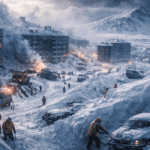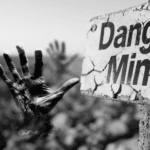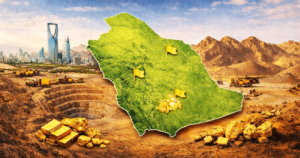The United States has thrown its support behind Israel’s decision to shut down the United Nations Relief and Works Agency for Palestine Refugees (UNRWA) in Israeli-annexed East Jerusalem, marking a significant shift in Washington’s stance on the agency. U.S. envoy Dorothy Shea endorsed the move at a UN Security Council meeting, backing Israeli allegations that Hamas had used UNRWA facilities for military purposes and calling for an independent investigation into the claims.
The shutdown order, which took effect on January 30, has sparked international backlash, with UN Secretary-General António Guterres urging Israel to reverse its decision. UNRWA chief Philippe Lazzarini condemned the move as a “relentless assault” on Palestinian refugees, warning that cutting off the agency would have severe humanitarian consequences, particularly in Gaza, where it has been the primary provider of food, healthcare, and education.
Despite mounting criticism, Israeli officials insist that alternative organisations can replace UNRWA, a claim Washington now echoes. However, humanitarian groups argue that no entity currently has the infrastructure or capacity to fully absorb UNRWA’s responsibilities, raising fears of worsening conditions for millions of Palestinians.
UNRWA’s Role and the Impact of Its Closure
Established in 1949, UNRWA has been a lifeline for Palestinian refugees across Gaza, the West Bank, Jordan, Syria, and Lebanon. In Gaza alone, where the ongoing war has devastated infrastructure, UNRWA has played a critical role in food distribution and medical aid. The agency estimates that 60% of all food reaching Gaza since the war began has come through its operations.
However, Israel has long accused UNRWA of enabling Hamas, arguing that its facilities serve as recruitment hubs and weapons storage sites. Following the October 7, 2023, Hamas attack on Israel, Tel Aviv claimed that at least a dozen UNRWA employees were involved and that Hamas had used UNRWA-run schools and clinics for military activities. An independent investigation led by former French foreign minister Catherine Colonna acknowledged “neutrality-related issues” within the agency but found no definitive proof to support Israel’s most serious accusations.
Nonetheless, Israeli authorities moved forward with their decision, enforcing legislation that bans UNRWA from operating within Israeli-controlled areas. Israeli Ambassador Danny Danon confirmed the decision at the UN Security Council, stating:
“UNRWA must cease its operations and evacuate all premises it operates in Jerusalem.”
The law also forbids Israeli officials from engaging with UNRWA in any capacity. Despite claims that Israel remains committed to its obligations under international law, the move is widely viewed as part of a broader effort to dismantle the agency.
Palestinians as Refugees in Their Own Land
One of the core issues surrounding UNRWA is its unique mandate. Unlike other refugee populations who fall under the UN High Commissioner for Refugees (UNHCR), Palestinian refugees rely solely on UNRWA for assistance. This stems from the mass displacement of Palestinians following the 1948 Arab-Israeli War, known as the Nakba (catastrophe), which left over 700,000 Palestinians stateless. Their descendants—now numbering over 5 million—continue to live under refugee status, as their right of return remains unresolved.
Israel and its supporters argue that UNRWA perpetuates the Palestinian refugee crisis rather than solving it. Critics claim the agency maintains a culture of dependency and should be phased out. However, Palestinians and their allies argue that shutting down UNRWA without a legal resolution to their status will only deepen their marginalisation.
Palestinian UN Ambassador Riyad Mansour criticised the shutdown, accusing Israel of deliberately undermining humanitarian efforts:
“Yet Israel is demanding that everyone forsake them and work around them, setting us all up for failure.”
With Gaza already facing starvation conditions, the closure of UNRWA in East Jerusalem may signal the beginning of a broader attempt to dismantle the agency across Palestinian territories.
Can Other Agencies Replace UNRWA?
Washington and Tel Aviv argue that other humanitarian groups can step in to replace UNRWA, pointing to the International Committee of the Red Cross (ICRC), the World Food Programme (WFP), and UNICEF as potential alternatives.
However, major logistical and political hurdles remain. UNRWA employs over 30,000 staff, most of them Palestinian, and operates hundreds of schools, clinics, and food distribution centres. No single entity currently possesses the infrastructure to fully replace its services.
The ICRC, which is often cited as a potential alternative, has faced its own credibility challenges. The organisation was criticised by Palestinian activists for its role in facilitating the signing of release forms for Israeli hostages held by Hamas, an act many saw as an endorsement of Israeli policies. This has damaged trust in the ICRC’s neutrality, making it an unlikely replacement for UNRWA.
Moreover, the ICRC primarily focuses on prisoner welfare, medical aid, and conflict mediation rather than large-scale education and food distribution. Even if other agencies take over specific services, the sudden termination of UNRWA’s operations risks creating gaps in essential aid.
UNRWA chief Philippe Lazzarini has dismissed claims that other groups can seamlessly replace the agency, stating:
“UNRWA’s capacity far exceeds that of any other entity.”
With no clear transition plan in place, concerns are growing over how essential services will be maintained, particularly in Gaza, where the humanitarian crisis is already severe.
The U.S. Shift on UNRWA: From Biden to Trump and Back Again
The U.S. stance on UNRWA has fluctuated dramatically in recent years. Under President Donald Trump, Washington cut all funding to the agency in 2018, arguing that it was “irredeemably flawed” and facilitated extremism. This decision was part of a broader policy shift that saw the U.S. recognise Jerusalem as Israel’s capital and significantly reduce diplomatic engagement with the Palestinian Authority.
President Joe Biden reinstated funding in 2021, but the administration remained cautious due to bipartisan pressure in Congress. Recent allegations linking UNRWA staff to Hamas reignited calls from U.S. lawmakers to defund the agency. At the UN Security Council meeting, U.S. Deputy Ambassador Dorothy Shea reiterated Washington’s stance that UNRWA’s role is overstated, stating:
“UNRWA is not and never has been the only option.”
Shea also called for a “full and independent investigation” into Israeli claims that Hamas used UNRWA facilities for military purposes. While past investigations found no conclusive evidence, Washington has backed further inquiries.
With bipartisan pressure mounting in Congress, there are indications that U.S. funding for UNRWA could once again be withdrawn, further jeopardising the agency’s ability to function in the region.
What Comes Next?
As of today, January 30, UNRWA’s operations in East Jerusalem are officially shut down. The agency has vowed to challenge Israel’s decision, while humanitarian groups warn that the closure will worsen the already dire conditions for Palestinian refugees.
With Gaza facing famine-like conditions, destroyed hospitals, and the spread of disease, the removal of a key aid provider could push the humanitarian situation into even greater crisis. While Israel insists that alternative agencies can take over, critics argue that no organisation is prepared to absorb UNRWA’s responsibilities overnight.
The UN has called for Israel to “retract” its order, but with strong U.S. backing, there is little indication that Israel will reverse its stance. Instead, today’s closure of UNRWA’s East Jerusalem offices may be the first step in a broader effort to eliminate the agency altogether.
For millions of Palestinian refugees, the future remains uncertain. Without a clear alternative in place, the dismantling of UNRWA could have devastating consequences, not only in Gaza but across the entire region.
















